Photos: UN delegates react to being lectured by Trump on morality and cooperation
In the fiery speech that US president Donald Trump delivered to the United Nations General Assembly today (Sept. 19), he divided the world into good and evil, said he would renegotiate his country’s relationship with the organization to better benefit the US, and harshly criticized the governments of several member nations.


In the fiery speech that US president Donald Trump delivered to the United Nations General Assembly today (Sept. 19), he divided the world into good and evil, said he would renegotiate his country’s relationship with the organization to better benefit the US, and harshly criticized the governments of several member nations.
“Major portions of the world are in conflict, and some, in fact, are going to hell,” he said at one point, “but the powerful people in this room, under the guidance and auspices of the United Nations, can solve many of these vicious and complex problems.”
Before taking office, Trump called the UN a “sad” club for people who just like to “get together and talk.” As president, his preliminary budget proposal slashes US funding of the organization. So his speech was highly anticipated by delegates, who were undoubtedly looking for signals of Trump’s attitude toward the UN going forward.
Their faces conveyed some skepticism. The world now enjoys a “time of incredible opportunity,” Trump said at the outset, citing global breakthroughs in science and technology. The audience listened, but guardedly:
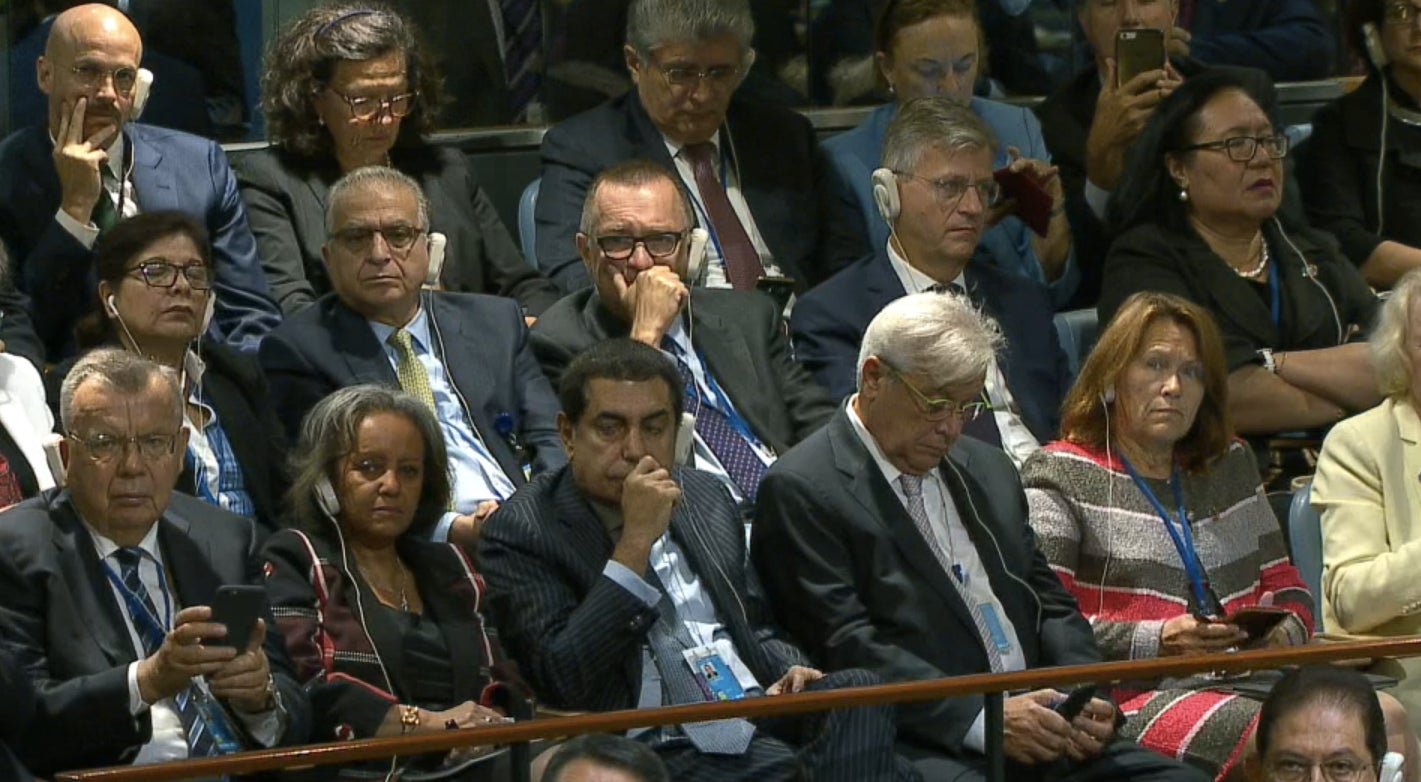
Trump said there was no regime more “depraved” than North Korea, which was responsible for millions of starvation deaths. This garnered little reaction from the North Korean delegate, who may have been writing down Trump’s remarks:
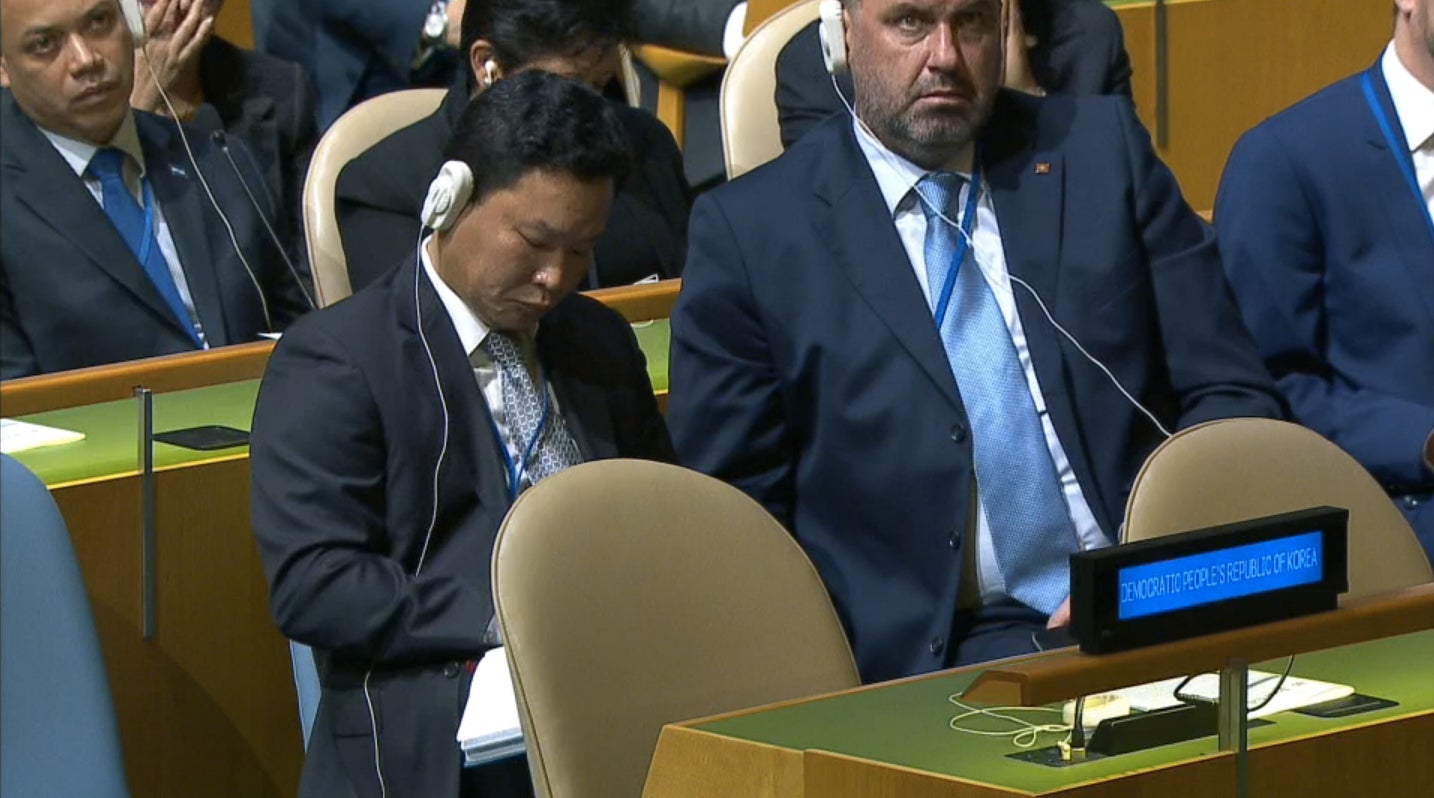
Unless Kim Jong-un’s regime curbs its missile program, Trump went on, the US would have “no choice but to totally destroy North Korea.” US ambassador to the UN Nikki Haley took in this statement with a rather grim expression, while Secretary of State Rex Tillerson looked concerned:
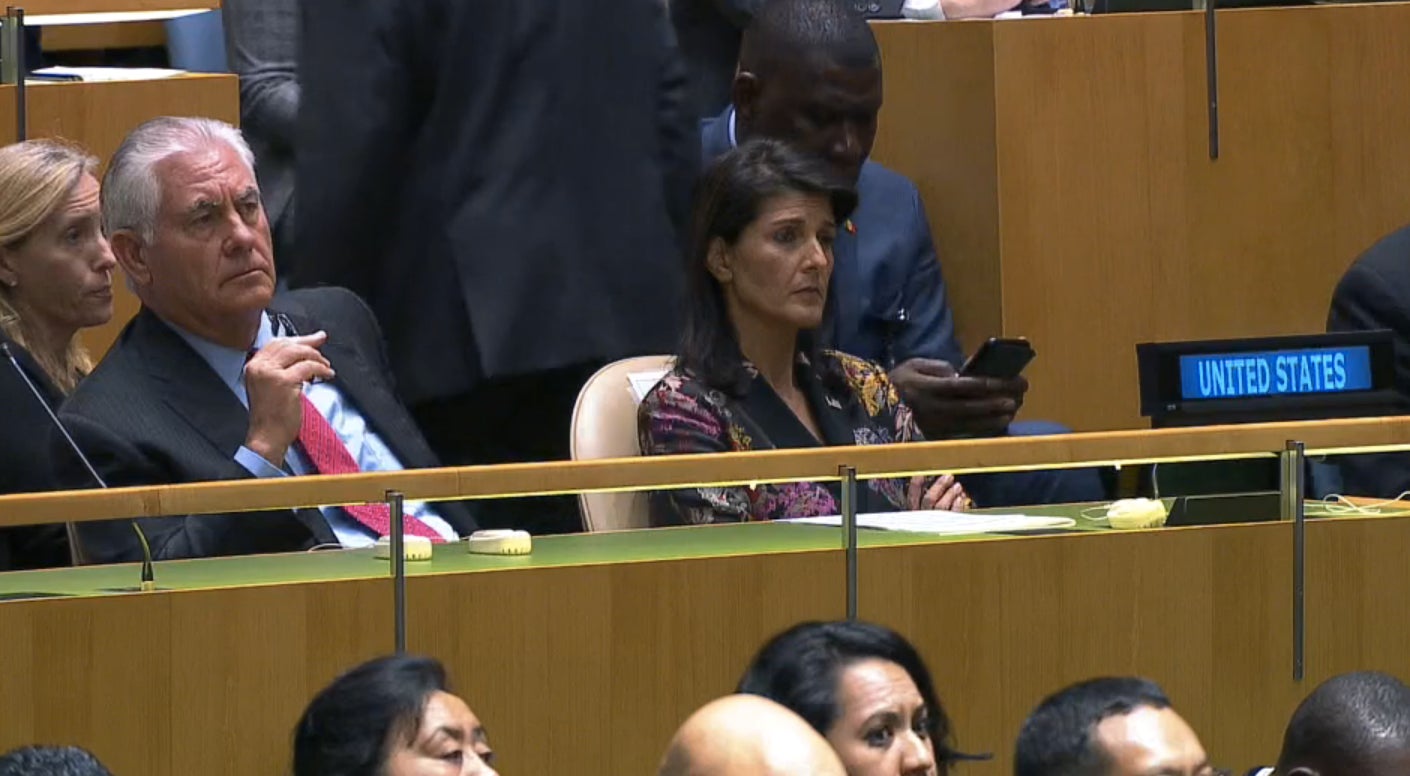
Then Trump lit into Iran, calling its leadership a “reckless regime that speaks openly of mass murder” and a “corrupt dictatorship” whose chief exports are violence. The Iranian delegate appeared at first to be on his phone as Trump spoke:
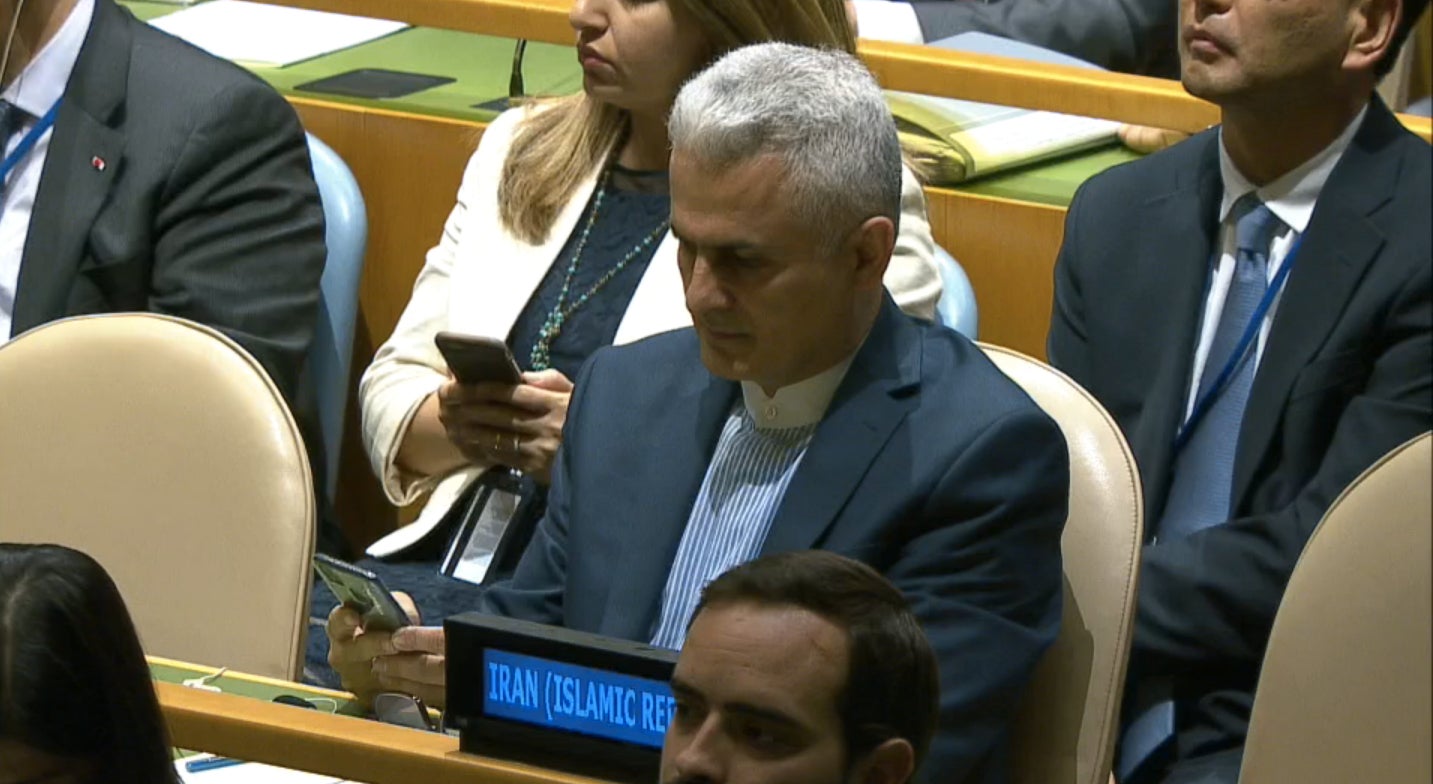
Israel’s prime minister Benjamin Netanyahu nodded in agreement when Trump accused Iran of attacking its neighbors.
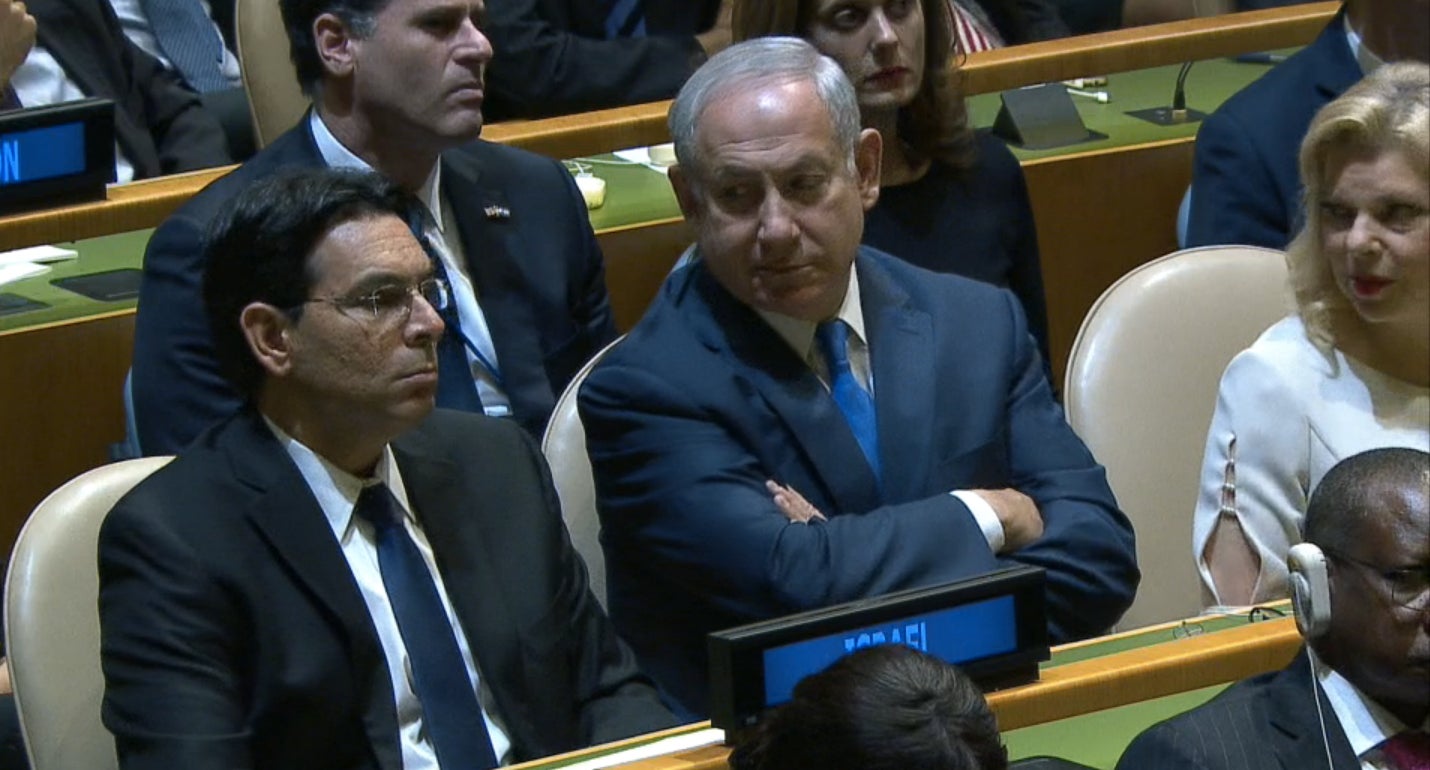
And Iran’s delegate (now in glasses) glared when Trump went on to call the historic deal that lifted sanctions on Iran in 2015 “an embarrassment” to the United States, and indicated that it would be renegotiated, then accused the government of censorship, supporting terror, and the “pursuit of death:”

Delegates from Iraq were stone-faced when Trump said the US has “achieved more against ISIS in the past eight months” than it had in many, many years prior.
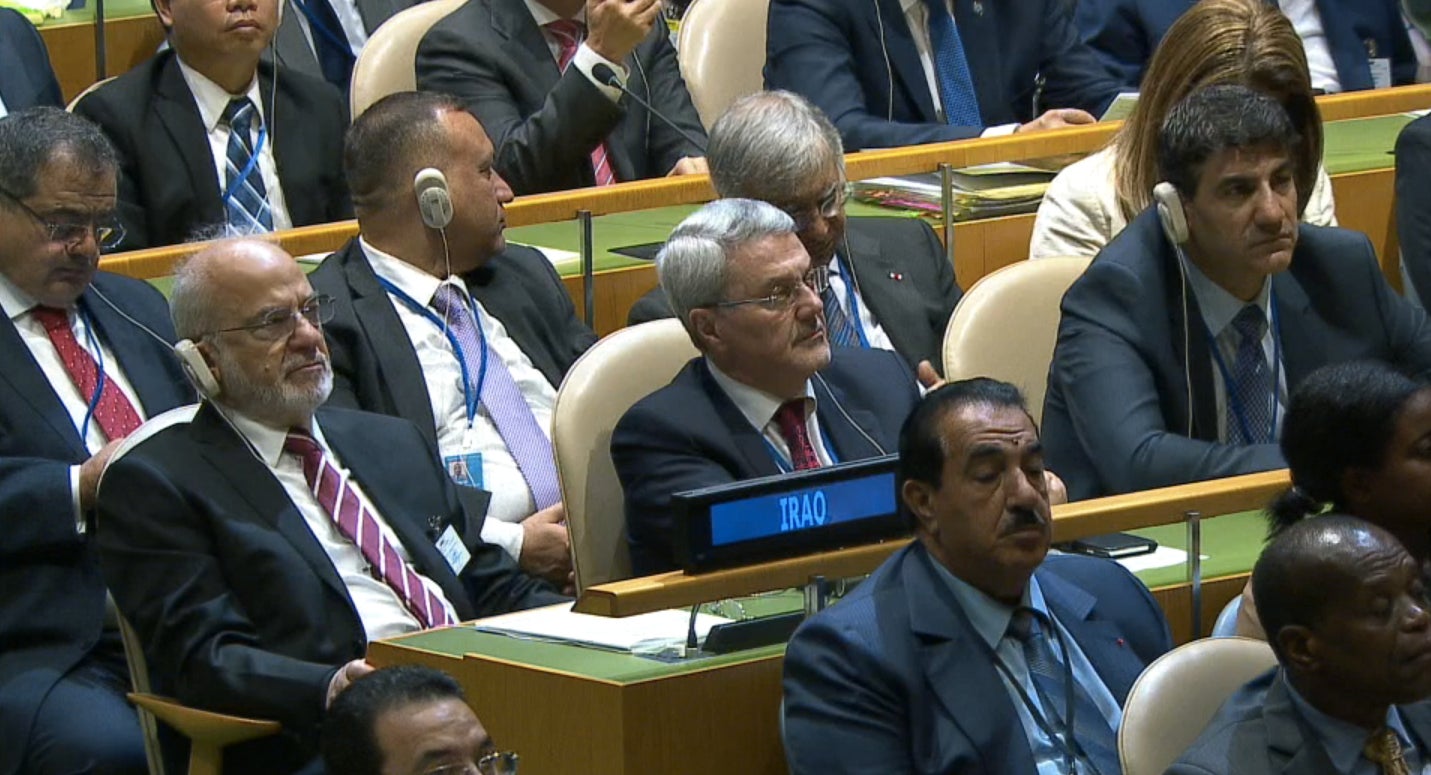
The delegation from Zimbabwe seemed unmoved when Trump pointed out that the US is just one of 193 countries in the UN, but pays 22% of its budget. (The US represents 27% of the world’s gross national product, which is part of the reason its contribution is so high.)
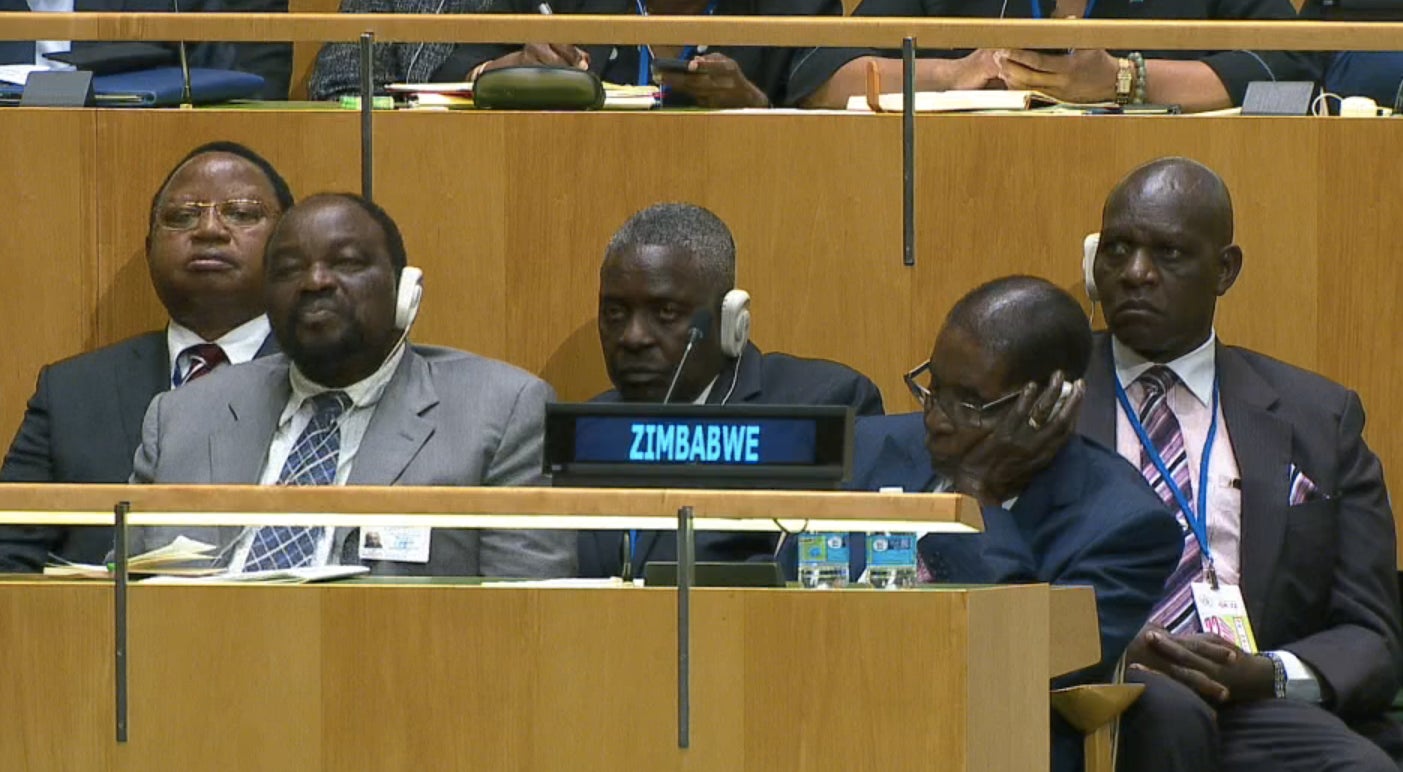
Trump called the Cuban government “corrupt and destabilizing” and said the US would not lift sanctions against the country unless there are fundamental reforms.
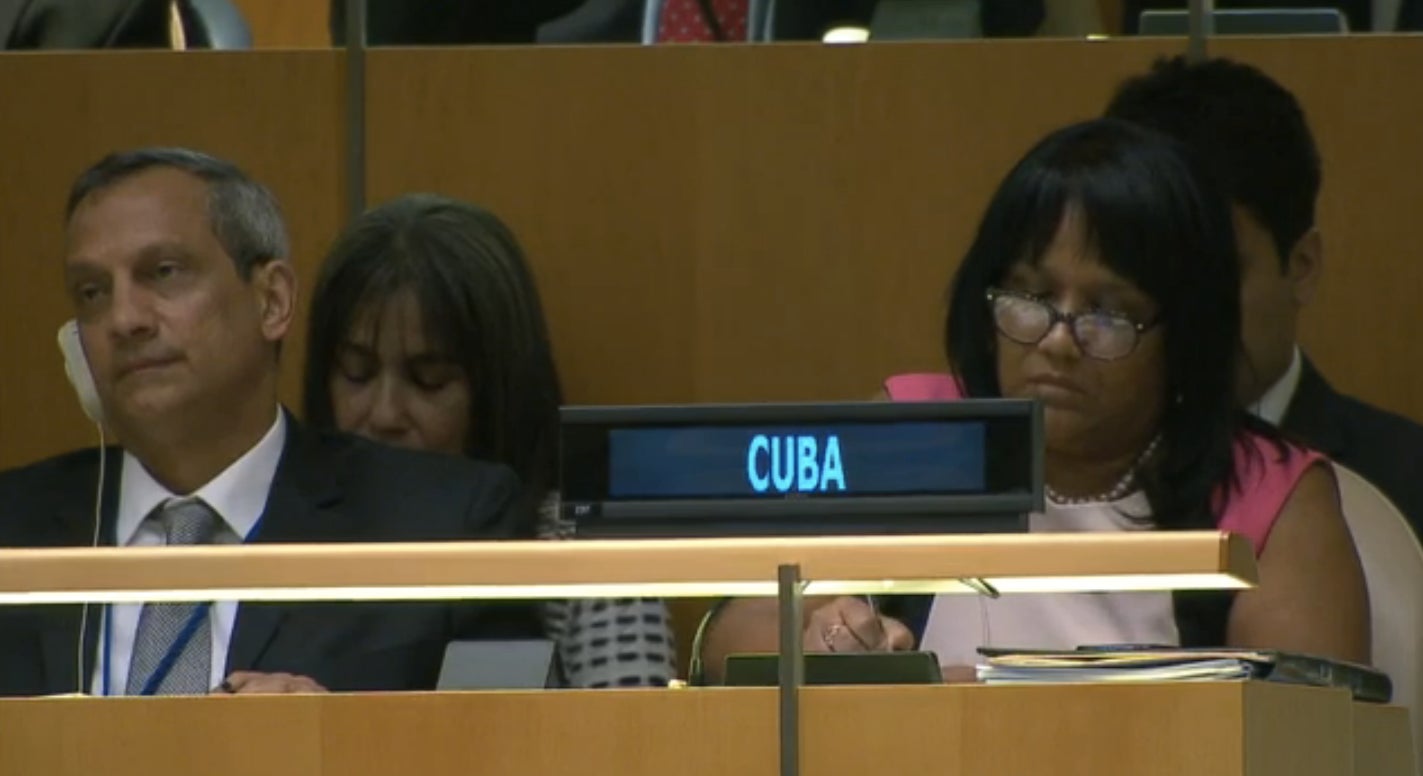
Then he went on to criticize the “socialist Maduro regime in Venezuela, which has brought a once thriving nation to the brink of total collapse.” The people of the country are “starving, and their country is collapsing,” Trump said, and “we can not stand by and watch.”
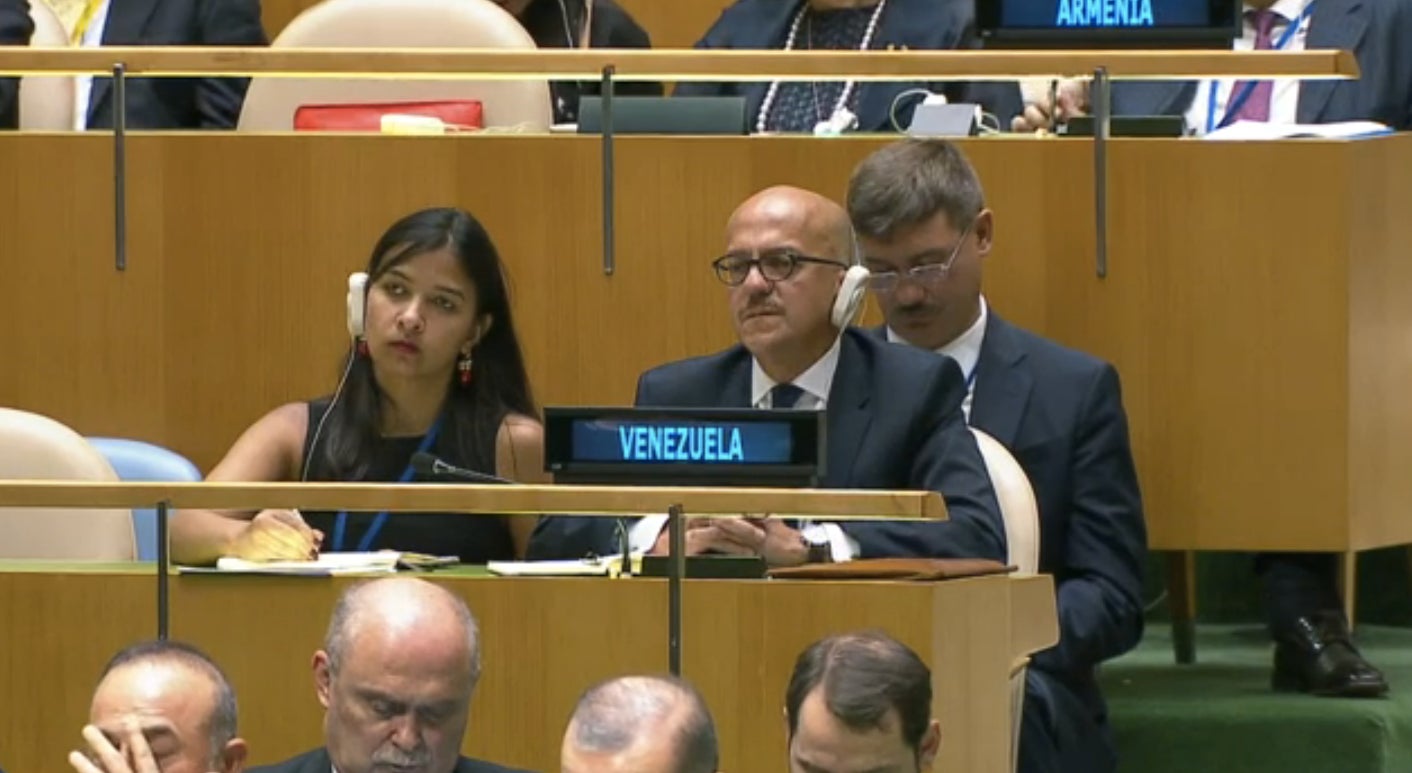
After he called for the “full restoration” of democracy in Venezuela, there was a moment of scattered applause.
Trump concluded by defining what he said was the “true vision” of the United Nations: “We will fight together, sacrifice together, and stand together for peace, for freedom, for justice, for family, for humanity, and for the almighty God who made us all.”